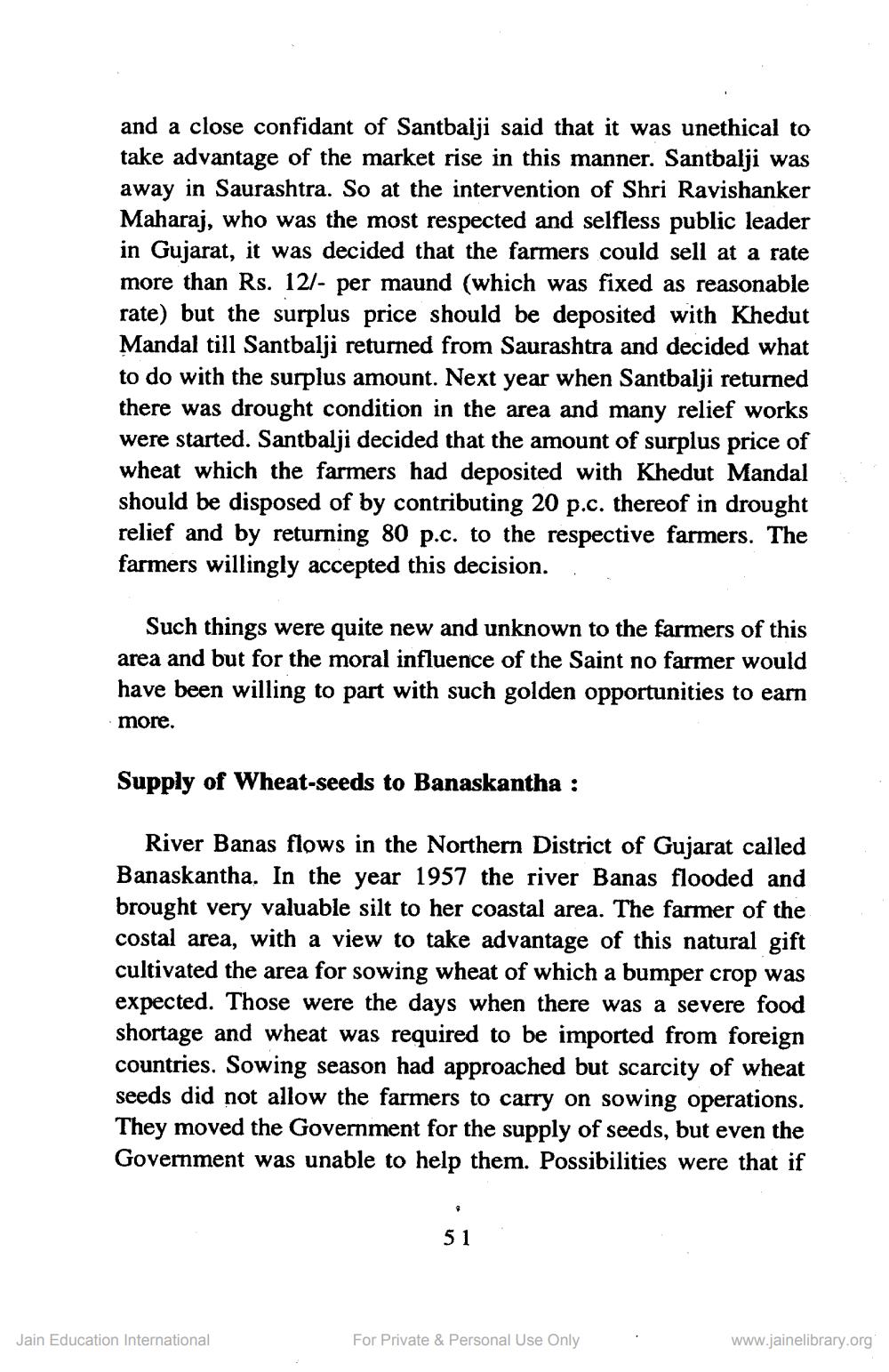________________
and a close confidant of Santbalji said that it was unethical to take advantage of the market rise in this manner. Santbalji was away in Saurashtra. So at the intervention of Shri Ravishanker Maharaj, who was the most respected and selfless public leader in Gujarat, it was decided that the farmers could sell at a rate more than Rs. 12/- per maund (which was fixed as reasonable rate) but the surplus price should be deposited with Khedut Mandal till Santbalji returned from Saurashtra and decided what to do with the surplus amount. Next year when Santbalji returned there was drought condition in the area and many relief works were started. Santbalji decided that the amount of surplus price of wheat which the farmers had deposited with Khedut Mandal should be disposed of by contributing 20 p.c. thereof in drought relief and by returning 80 p.c. to the respective farmers. The farmers willingly accepted this decision..
Such things were quite new and unknown to the farmers of this area and but for the moral influence of the Saint no farmer would have been willing to part with such golden opportunities to earn more.
Supply of Wheat-seeds to Banaskantha :
River Banas flows in the Northern District of Gujarat called Banaskantha. In the year 1957 the river Banas flooded and brought very valuable silt to her coastal area. The farmer of the costal area, with a view to take advantage of this natural gift cultivated the area for sowing wheat of which a bumper crop was expected. Those were the days when there was a severe food shortage and wheat was required to be imported from foreign countries. Sowing season had approached but scarcity of wheat seeds did not allow the farmers to carry on sowing operations. They moved the Government for the supply of seeds, but even the Government was unable to help them. Possibilities were that if
51
Jain Education International
For Private & Personal Use Only
www.jainelibrary.org




